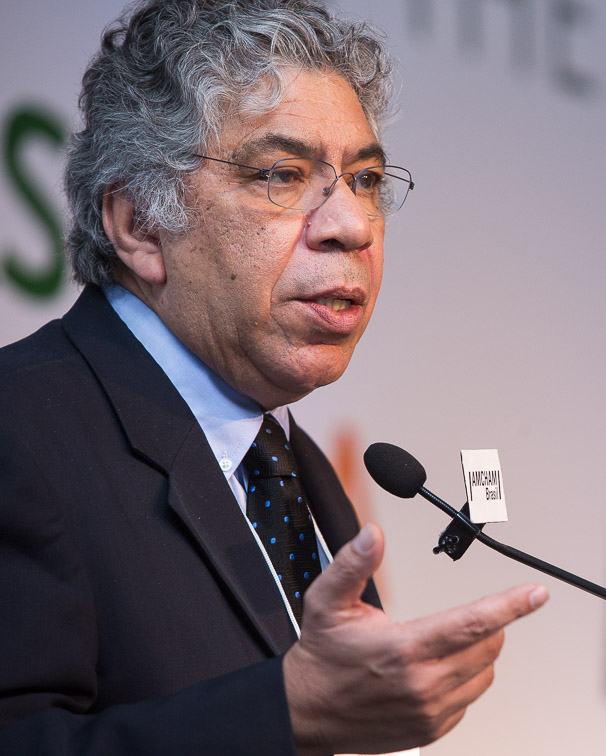LatAm in Focus: Otaviano Canuto on Fixing Brazil’s Economy
Brazil’s economy shrank by nearly 4 percent in 2015 and the political crisis in the country is stalling hopes for an improvement. The country’s woes are dragging down Latin America; the International Monetary Fund (IMF) has adjusted its Latin American recession projections from 0.3 to 0.5 percent for 2016.
 |
Otaviano Canuto, executive director at the IMF, spoke with AS/COA Online’s Luisa Leme about how Brazil’s economy got to its current crisis after decades of a commodity boom. Canuto said policies have faltered “for a long time” when it comes to infrastructure investment, adding that Brazil would need to dedicate at least 3 percent of GDP to maintain current infrastructure. “We’re in deep trouble in that regard,” he cautions, saying the country only dedicated 2.5 percent of its GDP to infrastructure since 2000.
For him, the answer for how to improve the economy lies with increasing productivity, starting with better opportunities and a clear set of rules for private- and public-sector partnerships. That would bring more competition to the infrastructure sector, with fewer barriers for outsiders. “That leads to more efficiency,” he says.
| “We will no longer have the kind of rigged process that we had until recently.” |
Infrastructure is in no small way connected to the country’s political crisis. The Lava Jato investigations are uncovering deep graft between political parties and the large construction companies. For Canuto, the painful process will lead to an important outcome: “The perception by the rest of the world and us Brazilians that there is rule of law in the country.” Canuto believes the scandals in the midst of a recession can lead to a new way to do business in Brazil. “We will no longer have the kind of rigged process that we had until recently,” he says.

